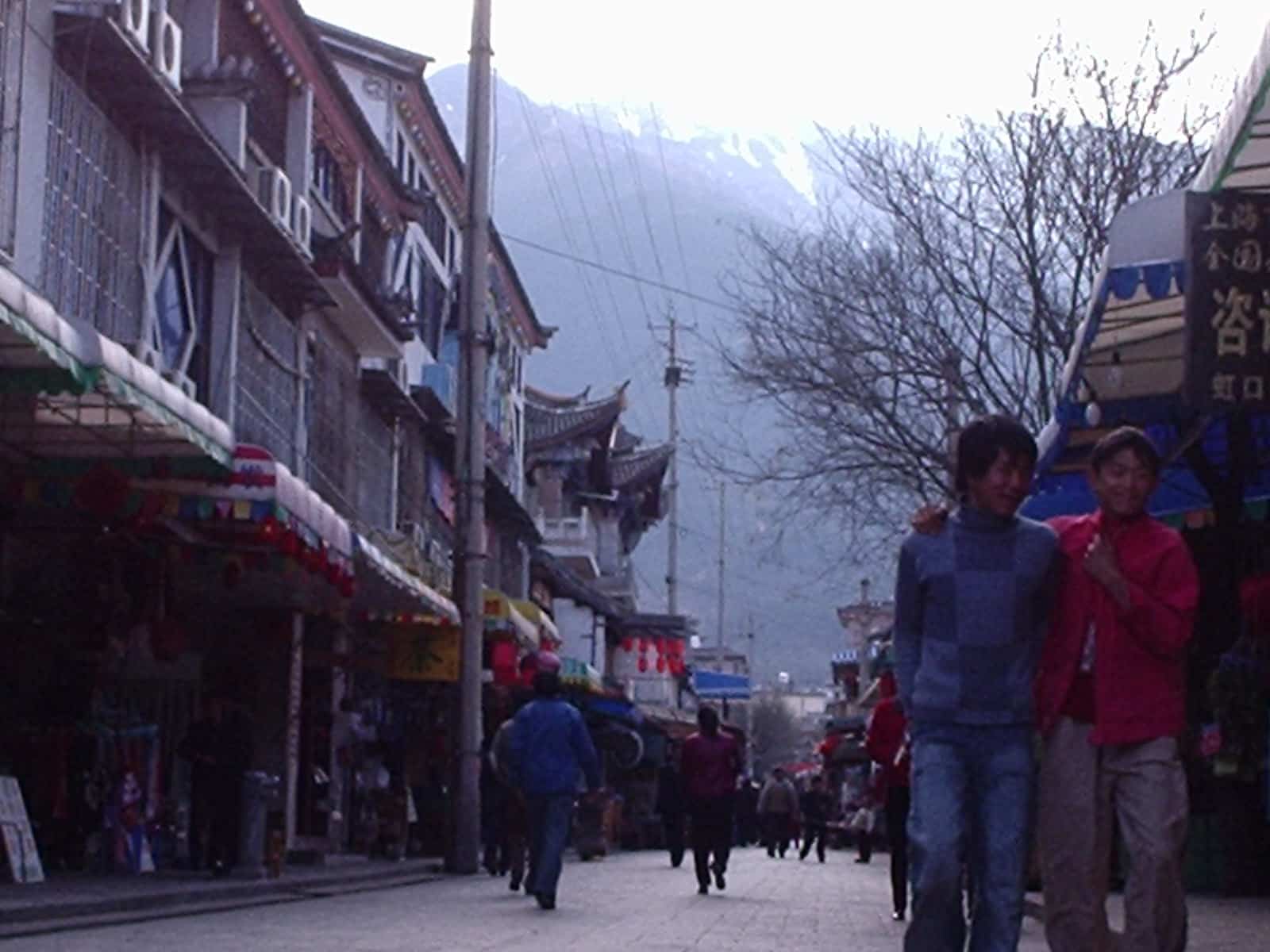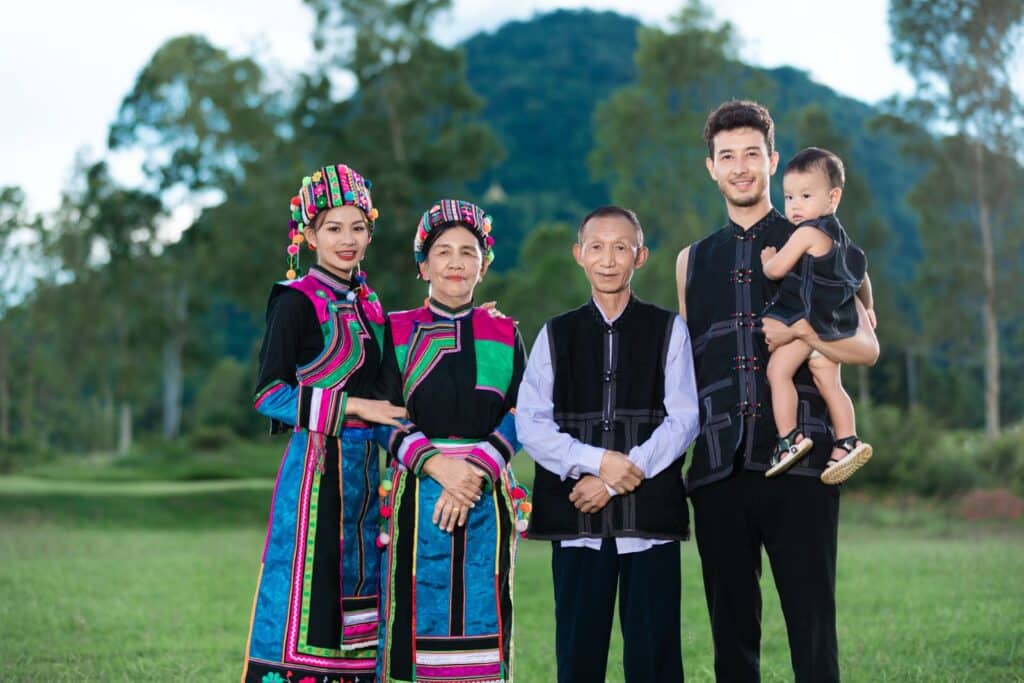
by Jared Lenhart
Table of Contents
My family and the ministry we serve, Frontier Harvest Ministries (FHM), have been prayer walking for decades. Since we’ve started, we’ve seen thousands of new believers discipled, churches planted, and people groups reached.
Right now, FHM has partnered with SEAPC on a new apostolic prayer walking initiative: The Quest. The goal of The Quest is to send teams on the ground in Asia to 72 different ethnic groups within Yunnan Province. In all, we are supporting two teams of three people to head out on rotation every month.
Every month, these teams aim to visit six new tribes; for the first two quarters of 2025, they’ve been averaging about eight new tribes per month. According to Joshua Project, all of these tribes are either classified as ‘unreached’ or ‘unengaged’ people groups. The basic strategy is simple: go into a village and prayer walk. That’s always the first step: getting boots on the ground. But is there more to it than that?
Download SEAPC's Free Prayer Walking Guide
1. Developing an Apostolic Mindset (FHM’s Prayer Walking Origins)
The first thing I want to emphasize in this guide is that just going and prayer walking is apostolic (‘apostle’ means ‘sent one’). You might not be an official ‘apostle’, but you can have an ‘apostolic mindset’ by going, sending people, having a heart for missions and unreached people groups, and planting churches where no church has been planted yet.
Applying that mindset is simple: back in the day, our family would just pull up in a Jeep and prayer walk the village until somebody saw us and invited us into their home. We would share the Gospel, sometimes through The Jesus Film, and then my dad would give them an opportunity to come home with us: “Do you like the message you just heard? Why don’t you come back to the city with us so we can start discipling you?”
This is how we were able to form local core teams – going to the villages, bringing people out to equip them, then sending them back so they can multiply it themselves in those same villages. Our guys now have the same mindset and Spirit: they carry Jesus’ identity so they can continue whether or not we are there. We still work as a team through the internet, but they’re the ones physically there.
They are proof that prayer walking still works today, that Luke 10 still speaks today. The same Holy Spirit is leading them. Our guys have prayer walked a lot of places this year, and they’ve found six ‘families of peace’ so far. We are no longer there, and the guys now have a van instead of a Jeep, but people in China are receptive: they still welcome outsiders into their homes, fulfilling the scripture.
Prayer walking principles are for everyone, everywhere; some things change, but the Great Commission stays the same. The way Jesus did things in Luke 10 is the same. The Holy Spirit is still equipping us today. We need to follow His instructions to grow the work in unreached places, wherever those may be, so that the local people can take hold of it and share with their neighbors — like we have seen our Han Chinese brothers and sisters now doing among the ethnic minorities in China.
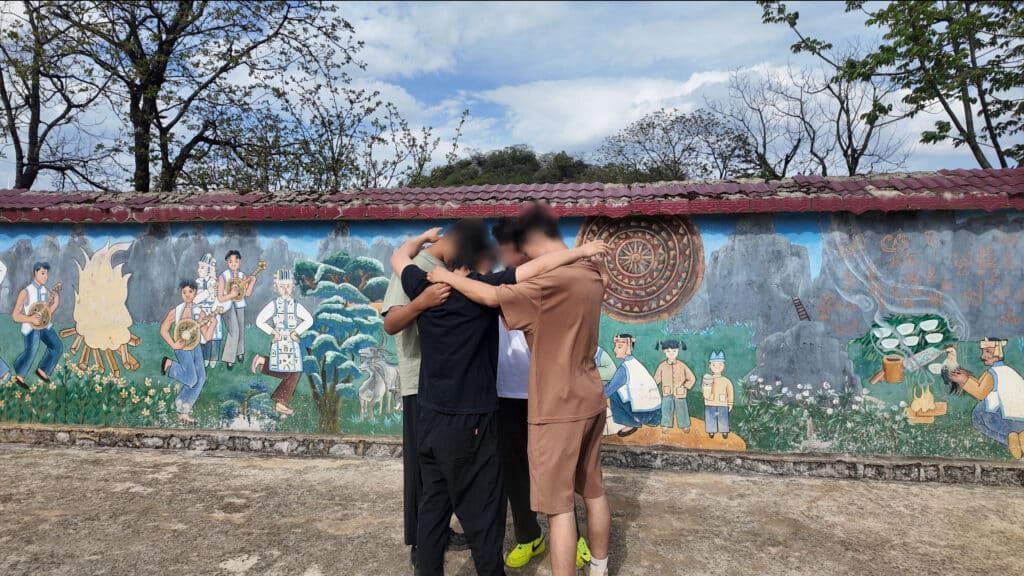
2. Knowing Your Why (What Does ‘Unreached’ Even Mean?)
Before I say more, I think it’s really important for people to understand what ‘unreached’ means. I don’t want to downplay the fact that people in America need Jesus — that there are people in our communities who have not yet heard the Gospel. They just aren’t ‘unreached’ according to the technical definition.
Joshua Project defines ‘unreached’ as a people group where evangelicals make up less than 2% of the population, and less than 5% adherent to any form of Christianity. That’s why ‘unreached’ does not refer to someone in America who does not know about Jesus. Our ‘people group’ is considered ‘reached’, even if everyone still needs Jesus.
The ‘unreached’ parts of the world are less than 2%, or even 1% ‘reached’. In fact, some places are less than 0.01% ‘reached’. These people groups have almost no opportunity to hear about Jesus: no established church, and nobody going to them. In America, you can hear about Jesus on the radio, on TV, on YouTube; there are churches on every block (of course, the other question in America is whether our churches are doing their job: are we evangelizing?).
Sometimes, when I talk about ‘unreached people groups’, people push back: “Well, my neighbor’s unreached.” No, they’re unchurched, unevangelized, or they’ve flat out rejected the Gospel. A lot of people have been hurt by the church. The point is, America is statistically 70% evangelized — which is way beyond the definition of ‘unreached’.
Even if a people group is over 10% evangelized, it’s considered a ‘reached’ nation, because it can now reach other members of that people group from the inside out. Unreached countries can’t do that, which is why we need to go to them. If you’re not going, you should be sending. If you’re not sending people, send resources and pray for people. Some churches don’t have people or resources to send, but they can partner in prayer, even while continuing their local work.
Once you can grasp this definition, you can understand what missions looks like today. We are blessed in that we no longer have to get in a boat, put all our things in a coffin, and then live in another country until we die. We can go back and forth. We can vary our ministry. It doesn’t just have to be one thing.
Jesus said we would be His witnesses, “First in Jerusalem, then in Judea and Samaria, and then to the ends of the earth.” (Acts 1:8). In other words, local, regional, and international. Knowing this perspective and knowing what terms like ‘unreached’ and ‘unengaged’ mean will help us to keep fulfilling the Great Commission.
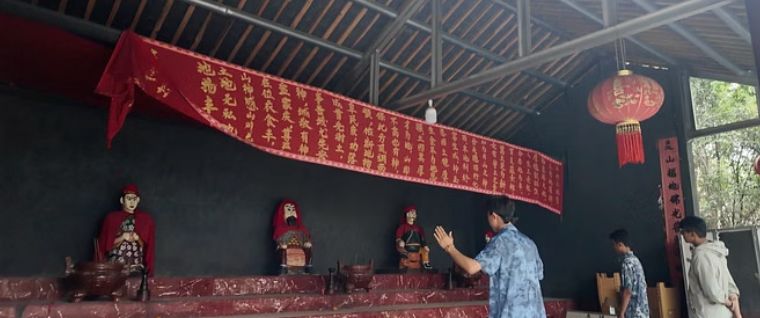
3. Combining the Apostolic with the Prophetic
The apostolic and the prophetic go hand in hand. When you see them working together, it pushes the work forward, and you see amazing Kingdom results. First, the prophetic directs and encourages you to go. Then, through the apostolic — being obedient to Jesus’ call to go — you get to see lasting fruit on the ground. The best story I know that demonstrates this is of the house church network we helped to plant in Inner Mongolia.
In 2008, when we were still living in China, Samuel joined our team. Samuel had connections in Inner Mongolia, which is in the northern part of China. He visited the region often and sent teams to prayer walk. Those teams would even go and live in people’s homes for months at a time to help herd sheep, harvest grass for feed during the winter, and deepen relationships.
One of those relationships was with a brother called Na Shun, whose Mongolian name is Wuratuaha. He and Samuel are close. Typically, Mongolians and Han Chinese don’t work well together, but somehow Na Shun and Samuel have broken that cultural barrier. They’ve been working together since Samuel joined FHM.
Fast forward to 2012: I was in High School in America, but our family was still traveling into and around China regularly. At that time, Samuel suggested we travel to Inner Mongolia to run a training. My dad loved the idea because he wanted to start an FHM center in Hohhot, the provincial capital. There was just one problem: in 2009, college students in Hohhot had started a huge riot against the government, and the government had responded by closing all of Inner Mongolia to foreigners – which meant that the trip we wanted to take simply was not possible.
One Sunday during that time, we visited Covenant Church of Pittsburgh. After the main gathering, they had a little mission meeting. We were going to talk about the trip we were hoping to take to Inner Mongolia. Before we had even said anything, one of the sisters in this church stood up and started speaking. I think she was Austrian.
She said, “I see you in a dry and desert land. I see you in Inner Mongolia.” (Inner Mongolia is part of the Gobi Desert.) “I see you in a vast land, standing amongst rocks. I see the wind blowing, and as it blows, I see the rocks turning over, and snakes coming out from underneath them, towards you. I see a lot of snakes, but do not fear them: the snakes are the souls of the Mongolian people — people the Lord is going to give you.”
We were like, “How does she know we’re going to Inner Mongolia?” It was totally the Holy Spirit. At the time she gave us the prophecy, the province was still closed, but just one week later, it opened up to foreigners again. Two months after that, we had our tickets and we were there, prayer walking in the grasslands, living in yurts, and sharing our strategy with brother Na Shun (going into villages, prayer walking, and making friends).
We trained people in the Lord from 2013 all the way to 2018 through annual Harvest Fests. We would gather workers and drive from Chengdu to Inner Mongolia — the journey took like four days by car. Sometimes we would fly. Now we get to see those people — people we laid hands on, prayed for, cried over, hugged, loved on, and baptized in Inner Mongolian rivers — doing the work themselves, planting churches and producing long-lasting fruit. Whole families are being saved.
One year, one of the guys coming to the Harvest Fest was on a train. He had a dream that a white, foreign dude he had never met before pulled him out of a river. When he arrived, he saw Eric, my roommate, and told him, “I saw you in my dream.” Sure enough, Eric baptized him. This guy was a Buddhist before. His daughter had brought him to the training. The year before, we had told the previous Harvest Fest participants: “Next time, bring someone who isn’t a Christian.” She brought her dad.
I just got off the phone with Na Shun a couple of months ago. He told me how they have now planted a house church in all nine districts in Inner Mongolia, with over 500 believers across the FHM network. All of that through prayer walking, connecting with locals on the ground, equipping them with the Word and training, and sending them with resources for further Kingdom work. And of course, we now have a Bible school and training center in Hohhot, which we built in a sheep herding building, where they also sell wool. That’s what happens when the prophetic and apostolic work together.
4. Establishing a Strategic Sending Base
One of the reasons we care so much about establishing training centers in major population centers (like the one in Hohhot), is their strategic importance: they open unexpected doors for the Gospel. For example, when our teams from Kunming go into villages throughout Yunnan province, they tell people about their business selling honey in the capital. On a recent trip to the villages, they met someone who produces honey, so they decided to partner with him: they transport his honey to Kunming, where they sell it. The profits help to support this guy’s family — and he is also now a ‘person of peace’ in that village.
There are other open doors. Hospitals in smaller towns aren’t as sophisticated as those in Kunming. They don’t have the right equipment or staff, especially in more severe or complicated cases. Most villagers don’t know anyone in the big city they can ask for help — but once they meet our guys, that changes. Our team is happy to be a local point of contact and to offer a place to stay (in the training center). There, they can do what they need to — like give them rides to the hospital — but they can also pray together and learn from one another in a safe environment.
We met another villager whose son is currently imprisoned in Kunming; he was caught working in a ‘scam center’ in Myanmar, so they extradited him to China and sentenced him to six years. This villager now visits Kunming a few times a year to see his son. Our guys help him get to those visits, and they even visit his son themselves when he’s not there. Thanks to the training center in Kunming, his dad now has friends who can be gap-bridgers in their situation, and who can offer a place to stay.

5. Spending Quality Time: Imparting Jesus’ DNA
Another priority for us is establishing consistent rhythms of gathering in — meeting together, and spending quality time together — so that we can eventually send people out. Like I mentioned for Inner Mongolia, we do this through something called ‘Harvest Fests’ where we gather anywhere from 10 to 200 leaders. During these gatherings, we explain what terms like ‘unreached’ and ‘unengaged’ mean, and we help them to see the reality of the Great Commission.
Of course, we spend time with our teams outside of these bigger meetings, too. Jesus had three-and-a-half years with the twelve disciples. He came alongside them, showed them what to do, and empowered them with the Holy Spirit. As missionaries, we have the same job: to get on the ground, form a core team, train up leaders, and get Jesus’ DNA into them so they can multiply. It takes a lot of training, a lot of time being together, and going out on mission together for them to get it. It’s a process.
It’s all about doing life together. If I’m living in the grasslands of Mongolia in a tent, you’re living in a tent with me. If I’m in a 5-star hotel, you’re going to be with me there, too. We roll as a team, and we do things as a team. I’m not going to stay in some fancy hotel while our brothers are in a 1-star hotel, so I can save a little bit of money. We’ve got to be together to have that camaraderie.
Most of these guys don’t grow up with that. Most of them don’t have a mom or dad who told them they loved them. Most don’t grow up in an apostolic church environment where they can be equipped and go as part of a team — so they have to get used to that dynamic first, before they are sent. Over time, they can develop a humble spirit, a willingness to learn, and a desire to go, so that one day, they will be ready to teach others to do the same. That’s how you multiply.
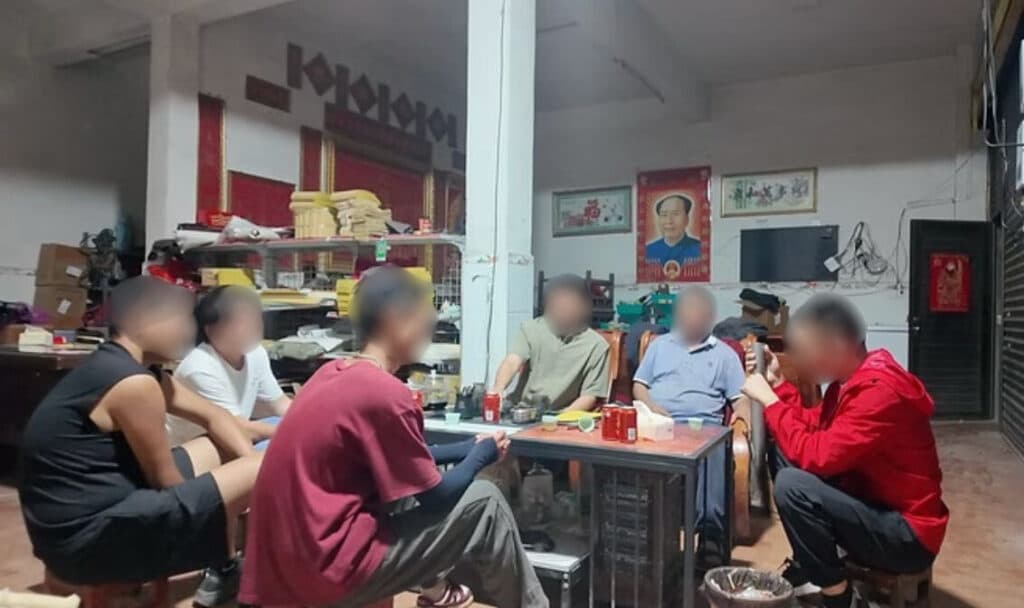
6. Finding the Person of Peace: It’s Not Always Straightforward
Getting our guys confident of their identity in Jesus grounds them when things get tough. Back in March, they went to a village in Tunjie Township, Dali Prefecture, in northwest Yunnan. The Niesu People live there. Our team went in, started prayer walking, and felt uneasy all day. People just weren’t open. In a lot of other places, locals would initiate conversation or invite our guys to help work in the fields. Not so here. Every time they tried chatting, they were turned away. People even closed their windows while they walked by.
They tried introducing themselves, “Hey, we’re businesspeople from Kunming, and we’re trying to find local honey or other produce we can sell in the city. We’re here to tour around and check this place out.” But nobody responded. One guy even opened his door and told them, “I don’t want to talk to you. Get out of here.” And then the village elder came up to them and started interrogating them, “Why are you here? Who sent you? What are you doing?” That really spooked them, so they got in their van and skedaddled.
As Jesus says in Matthew 9 and Luke 10, “If you’re not welcomed in one village, wipe the dust off your feet and go to the next village.” So that’s what they did. It’s not worth pressing in those situations. In China, if you get caught preaching the Gospel, or if they know you are connected to foreigners, you can go to jail or be put under close surveillance.
Anyway, our team started driving and praying in the Spirit, getting their ‘spiritual high’ on. As tongues flowed out, they asked God to open doors for them — and then they made a ‘wrong turn’. They got lost in the middle of nowhere, in the foothills of the Himalayan mountains. It was starting to get dark, it was a dirt road, and the van literally ground to a halt. Doubt set in: “God, why are we even out here?”
All of a sudden, a sheepherder appeared on the road. At first, they were worried he was going to give them some ‘ma-fan’ (‘trouble’) like the villagers in the town they had just come from, but he came over and offered to help. In fact, he invited them all back to his house, and they stayed in his home. Before they even arrived, there was a huge meal waiting — enough for the five guys in that team. They had found the ‘person of peace’ Jesus promised.
When you prayer walk, you might encounter obstacles designed to distract you from the main mission — but sometimes, those ‘distractions’ can actually be God leading you where He wants you to go, to the people He wants you to meet: “All things work out for the good of those who love Him and are called according to His purpose.”
In the 2 months since this article was written, our teams have connected with 15 further unengaged people groups, making friends with 8 new ‘families of peace’. The Quest Update (August 2025)
7. Standing in the Gap for More Open Doors
God says in Ezekiel 22:30 that “I looked for someone among them who would build up the wall and stand before me in the gap on behalf of the land so I would not have to destroy it, but I found no one.” I believe He is still looking for people to ‘stand in the gap’. If you’re willing to go, God will send you and work with you.
When you go, it’s important to remember: you might not ‘feel anything’ in the moment, but simply showing up, being obedient, and praying according to His will initiates something in the spiritual realm. If you are a child of the Most High, you have a brother, Jesus, who made a way and stood in the gap for you, so that you can now stand in the gap for a lost world.
Back in 2014, we planned a trip to Sichuan Province, to a town called Muli, which borders Tibet. It’s built into the side of a mountain, on one side of a huge valley. If there were a landslide, the whole place could collapse. It’s pretty remote. When we told our local team we wanted to prayer walk there, they didn’t get it: “What’s in Muli?” We reminded them: “Souls that need saving!”
Back then, my dad’s uncle, Pastor Ray Patterson, was still alive. We invited him and some other guys, like Dan Ecker and Tod Rosenwalk, to join our local team on the trip. We were just going to prayer walk — to stand in the gap for the people. Muli was also important to us because it was one of the last frontiers: once you were established there, you could send workers into Tibet, and even further.
It was a long journey. We spent 24 hours in trains and cars to get there — after a 24-hour plane ride. When we arrived, I’ll admit I didn’t feel like very much was happening. The view was pretty spectacular (we prayed for the city from the other side of the valley, with a 3,000-foot drop in between us), but there was no ‘whirlwind’ of the Holy Spirit, no intense emotions, no physical proof of anything happening. We prayed, we walked, and we went home.
On the train back, Pastor Ray fell asleep. Several hours in, he woke up, super excited, and shook my dad, “Chuckie! Chuckie! Wake up! I just had a dream! I saw a red dragon flying over the valley, and it turned pale white, fell from the sky, and died. Then the dream ended and I woke up.” This was all the confirmation we needed, and it was a big change for Pastor Ray, given his skepticism before the trip, when he’d pressed my dad, “Why in the world would we go there? What purpose could it possibly serve?”
Pastor Ray’s newfound dream perspective proved trustworthy. A couple of months later, my dad equipped the local guys on the ground and sent them to Muli. A couple of families were saved on that first trip. Since then, one local family donated their whole apple orchard to host an FHM training and sending center. We partner with them to this day — and it all started from going and prayer walking.
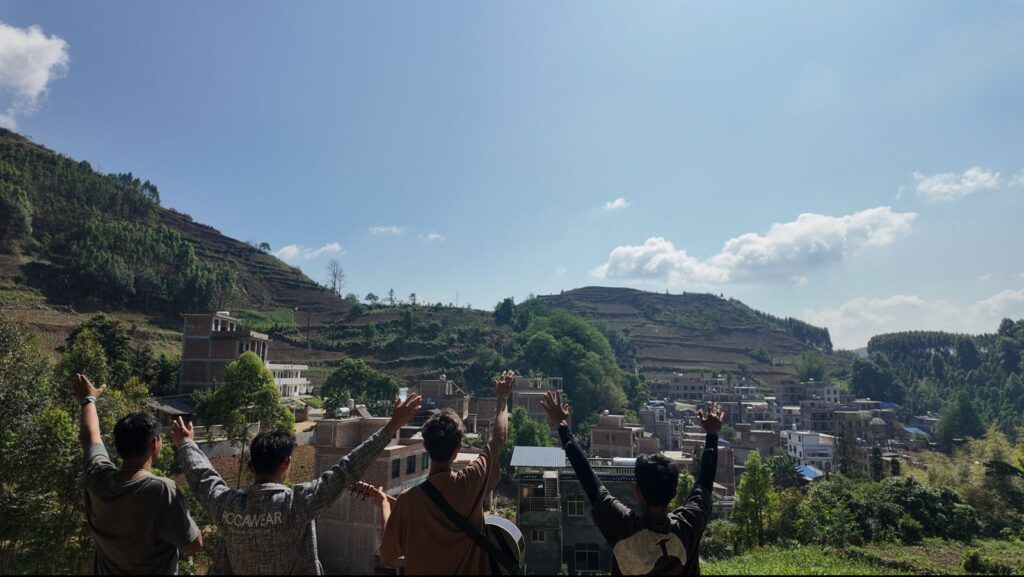
“Go Into All The Earth…”
In Matthew 24, Jesus says that the Gospel will be preached in every “ethnos”, and then the end will come. There are so many “ethnoses” in China, Vietnam, Mongolia — all across the 10/40 Window — that have nobody standing in the gap for them. We need to send teams in to get boots on the ground and start praying.
We believe that, when we send people in basic obedience to prayer walk, make friends, and persevere until they find the right people of peace, we will see entire people group movements form — movements that can reach their own people. But that won’t happen unless we are apostolic, and we get out of our comfort zone — actually going to these hard-to-reach places.
As our friends and mentors, the Gepperts, like to say, “The harvest is plenty, and the workers are… you.” Will you go? Will you stand in the gap in the earth’s final frontiers? For people who have never heard the name of Jesus? To see the end come? To see Jesus return and establish His Kingdom? He’s ready; are you?
"And this Gospel of the Kingdom will be preached in the whole world as a testimony to all nations, and then the end will come..." Matthew 24:14
Access Our Free Prayer Walking E-Course Download the Prayer Walking Guide

